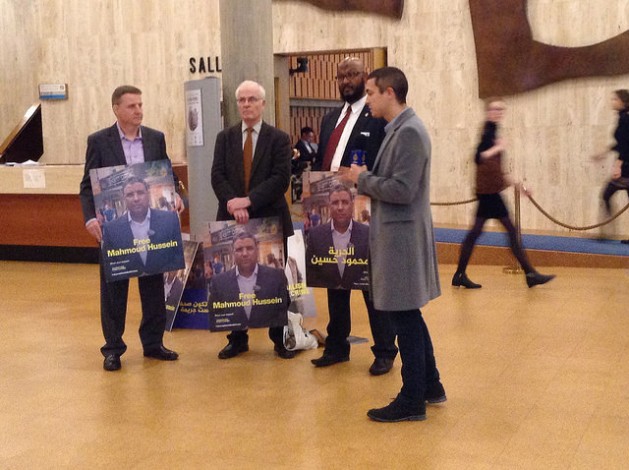Dhaka – A total of 141 journalists, three online activists and three officials of a publishing house, including the owner, were subjected to a total of 320 violations in 147 different incidents including three killings in Bangladesh in 2016, according to a report.
ARTICLE 19, a UK-based organization defending freedom of expression and information, in its 2016 county report observed that it saw a notable increase in the number of violations against journalists and online activists compared to previous years.The report titled “Bangladesh: Violations against Journalists and online activists in 2016” has been released on Tuesday to mark World Press Freedom Day.
Bangladesh faced another violent and repressive year for freedom of expression and press freedom. Brutal attacks on journalists and online activists, and the use of unfair laws and criminal defamation provisions which clearly violate international standards, continued to stifle free speech, said the report.
The report shows that leaders and activists of political parties carried out the highest 66.90 percentage of attacks against journalists and online activists. Besides, 6.89 per cent has been carried out by criminal groups, 4.83 by law enforcement agencies, 2.76 by elected public officials, 2.07 by religious fundamentalists, 2.76 by unidentified and 11.03 by others.
Harassment through the unwarranted application of laws, including criminal defamation cases, vexatious cases under different laws including the Penal Code 1860, the Information and Communication Technology Act 2006 (amended in 2013) and the Special Powers Act 1974, and the use of Section 57 of the Information Communication Technology (ICT) Act, constituted 39.1 per cent of the total violations posing the most significant threat to freedom of expression, it said.
The killings of LGBTI magazine Roopban editor and activist Xulhaz Mannan along with his friend and of secular online activist Nazimuddin Samad by religious fundamentalists continued to create atmosphere of self-censorship.
However, only two out of the 51 journalists killed to date since 1995 have led to convictions, while most cases did not pass beyond the investigation stage. In December, a lower court delivered a verdict in the case of journalist Manik Saha, who was murdered in a bomb attack 12 years ago, sentencing nine of the eleven accused to life imprisonment and acquitting the other two, said the report.
Notably, we have seen ‘attempted killing’ as a new form of violation emerge, which was used to silence journalists such as the attempted killing by pouring 25-liter kerosene over Jamuna Television Senior Correspondent Shakil Hasan for covering illegal manufacture of polythene.
The use of criminal defamation has increased seven-fold and amounted to 78 cases, compared to only 10 in 2014. This year different laws have been used in conjunction to harass targeted individuals, such as The Daily Star editor Mahfuz Anam faced 66 criminal defamation cases, and 17 cases filed with vexatious intent for alleged sedition by leaders and activists of the ruling Awami League and its affiliated bodies across the country, after his admission regarding a lapse in editorial judgement while publishing a report containing unverified information.
The use of Section 57 of the ICT Act for criminalisation of online expression remained significant as we have recorded 22 cases filed under the Act and 16 of the total 23 arrest or police remand.
Attacks against physical integrity including killings, attempted killings, serious bodily injury, minor assaults and abduction constituted 19.4 per cent of the total violations, and arrests and police remand 7.2 per cent to silence journalists and online activists.
In 2016, we have seen threats and intimidation being used on a large scale 15 per cent as 36 journalists were threatened as a group when organising a protest against the physical attack against, and abduction of, a fellow journalist by followers of a municipal mayor.
Tahmina Rahman, Director, ARTICLE 19 of Bangladesh and South Asia said that the State must take steps to “create a safe and enabling environment for journalists and activists to carry out their work, and take measures to ensure their security and protection in line with Bangladesh’s obligations under UN Human Rights Council Resolution 33/2 on the Safety of Journalists, and the government’s commitments during its most recent UPR.”
She added, “that the government needs to address these serious and continuing violations of free expression, and lack of protection of journalists and online activists. – Staff Reporter




